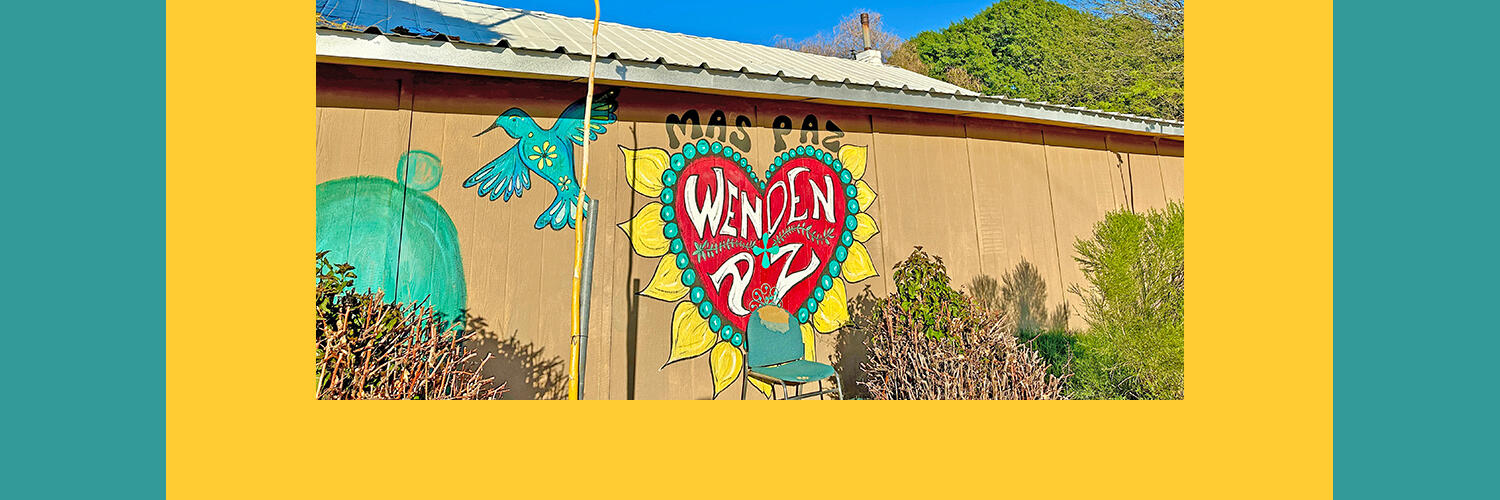
Community partner profile: La Paz County resident DeVona Saiter discusses rural groundwater issues
DeVona Saiter is a resident of Wenden, in La Paz County, Arizona, where her family has deep roots. Saiter is a local leader, community builder and business owner in this rural area west of Phoenix. She has experienced firsthand the damage caused by flooding and land subsidence due to groundwater overpumping in the region.
A deep connection to Wenden
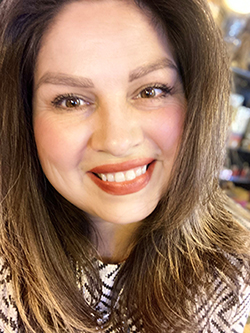
Saiter was born and raised in Arizona. Growing up, she traveled between Phoenix and Wenden, visiting her family.
“My childhood was spent living on Phoenix’s Roosevelt Street before it became the cool, trendy place to live that it is now, and I loved living in the Valley. At the same time, my family helped settle Wenden in the early ‘60s and I was there a lot as a kid,” Saiter says. “There are several generations of my mom’s family, the Ramirez clan, still living here.”
Around 20 years ago, she moved permanently to Wenden and purchased a 125 year old building, one of the few remaining original structures in town. After traveling extensively and being influenced by cafe scenes in places like France and Belgium, she launched a warm and eclectic coffeehouse with her mom that became a local gathering spot for nearly a decade.
“Running that coffeehouse was a turning point. It showed me how powerful it is to create a space where people can gather, it just had great vibes. But then I had a pretty direct experience of our growing water issues," says Saiter. "After a devastating 2012 flood where the roof collapsed and water came through the floor, we ended up having to close the cafe. I kept the building, which eventually became my office and a hub for community engagement.”
Her journey took another turn when, after reflecting on her love of architecture and community spaces, Saiter returned to school, earning a degree in planning from Arizona State University in 2018.
“ASU really helped shape my approach to community development,” Saiter explains. “During my time there, I gained a deeper understanding of sustainability, economic development and planning for the future.”
She credits her experience at ASU with not only expanding her skill set but also igniting her passion for working on local community issues. For example, Saiter was appointed La Paz County Planning Zoning Commissioner for her district and Wenden Director of Public Relations and Community Development, as well as Wenden Domestic Water Improvement intern and soon to be new board member.
“I learned how to think long-term and plan sustainably,” Saiter says. “It helped me understand the need for a unified approach to issues like water management. That’s something I’m bringing back to Wenden, ideas that are both creative and practical.”
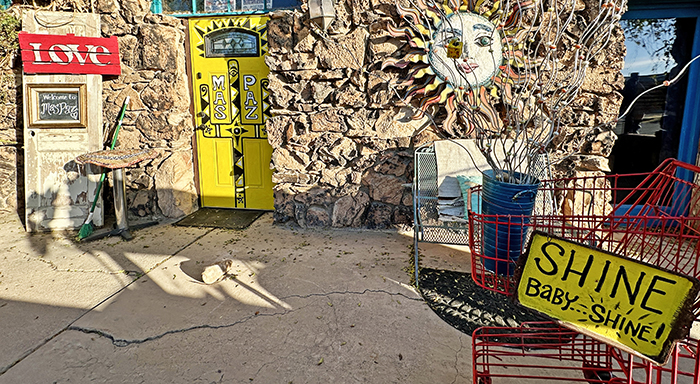
Saiter then opened a store called Mas Paz - Desert Spirit Shop, now located in the same space as the cafe, as a testament to her belief in the power of creativity to revitalize a community.
“One thing that stuck with me was this: if a small town doesn’t have businesses, especially interesting, creative ones, it’s dead. I decided to reopen the space as a business that could bring that vibe back,” Saiter says. “That’s how Mas Paz was born, as a multicultural gift shop full of handmade, meaningful items from local and global sources. It’s about community and connection. I want people to walk in and feel welcomed, to feel like they belong there.”
Understanding groundwater issues
Saiter’s deepening commitment to her community and her own experiences with flooding led her to learn more about groundwater issues facing Wenden. About 10-15 years ago, Wenden started to experience repeated 100 year floods that Saiter says were detrimental for many home and business owners.
“It wasn’t just the floods, there was something deeper going on,” she says. “Sinkholes were popping up around town, and that’s when I started learning about land subsidence. That just opened the doors wide open for me to learn more about the effects of overharvesting water from our ancient aquifer.”
Wenden is experiencing significant land subsidence due to groundwater overharvesting.
“We’ve sunk over 13 feet in the last 15 years,” Saiter explains. “Agriculture, especially alfalfa, is a major contributor. When I learned about subsidence, it opened my eyes to the broader issue of groundwater overuse.”
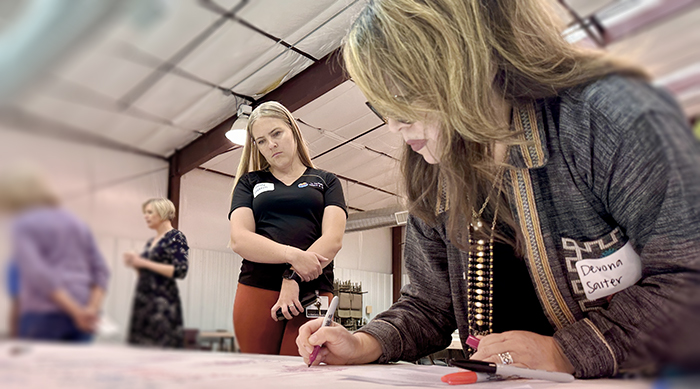
The damage to Wenden’s land and infrastructure has spurred Saiter to work on solutions to protect her community’s future. She has been vocal about the need for stronger local control over water resources. For example, she recently participated in the planning and implementation of a rural groundwater workshop co-developed by La Paz County residents and Impact Water - Arizona, a program of the Arizona Water Innovation Initiative.
“What stood out for me from the workshop is knowing that we are not alone, this is happening all over and many voices are finally being heard about water issues,” says Saiter. “It was great to see so many ideas come out of our discussions, to share stories and to learn more about the technology and policy solutions that exist. The workshop brought forth facts and resources, validated our concerns and reignited the fire for the cause!”
Saiter is continuing her work on groundwater in La Paz County, and is starting to organize the community to proceed. First up, she says, is to get everyone on the same page about what is occurring.
“We need a central platform where the community can come together, share concerns and access information about groundwater issues,” she explains. “I hope to develop a website that would house all the data, tell our story clearly and provide resources for everyone from local residents to county officials.”
Saiter hopes this platform will offer a space where people can report issues, access resources and engage with each other about water challenges.
A vibrant, creative future for Wenden
Saiter envisions a thriving, creative Wenden, a place where artists, locals and visitors can connect with the community and each other.
“If you bring in the artists, the energy follows,” she says. “That’s what’s been happening here over the last decade. Artists can come and live affordably, repurpose trailers into studios, create yard art and make use of old junk.”
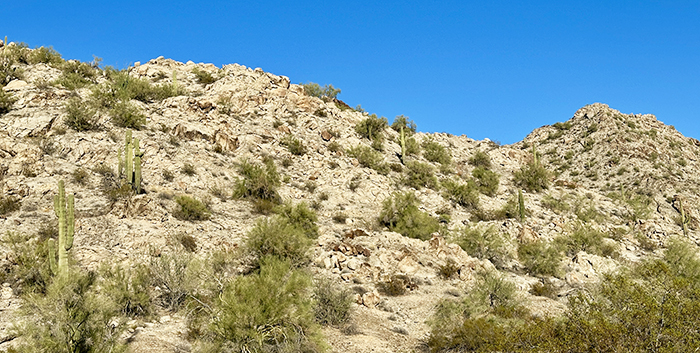
“We have a lot of artists here, and the town has a creative, vibrant feel,” Saiter says. “We have fewer restrictions than other places, so people can create freely. That’s part of what makes Wenden special.”
Wenden is also haven for those looking to escape city life, says Saiter. “We can grow our own food here, and with the water we have, we can live sustainably. If you want to live affordably, creatively and close to nature, Wenden is the place.”
Saiter’s commitment to Wenden is tied to the multi-generational families who have called the area home for decades.
“Before my grandparents passed, we had five generations living here,” Saiter says. “Wenden was the agricultural support town for the whole area and families worked the farms for generations. It has retained an Old Mexico feel, it’s a vibrant cultural mix with a large Latino population. That rootedness, and affordability, is something I want to protect for future generations.”
Saiter’s work on water protection, community development and revitalization is a testament to her dedication to preserving the legacy of Wenden.
“If you can’t tell, my love for Wenden runs deep! I want our community to be one of the most desirable places to live. My vision for us is to become a wellness destination: hiking, desert beauty, small-town charm," Saiter says. "The whole vibe is about peace, reflection, recovery, creativity and reconnection. We have a desert paradise here and I want us to have this lifestyle for many generations to come.”
Related stories: